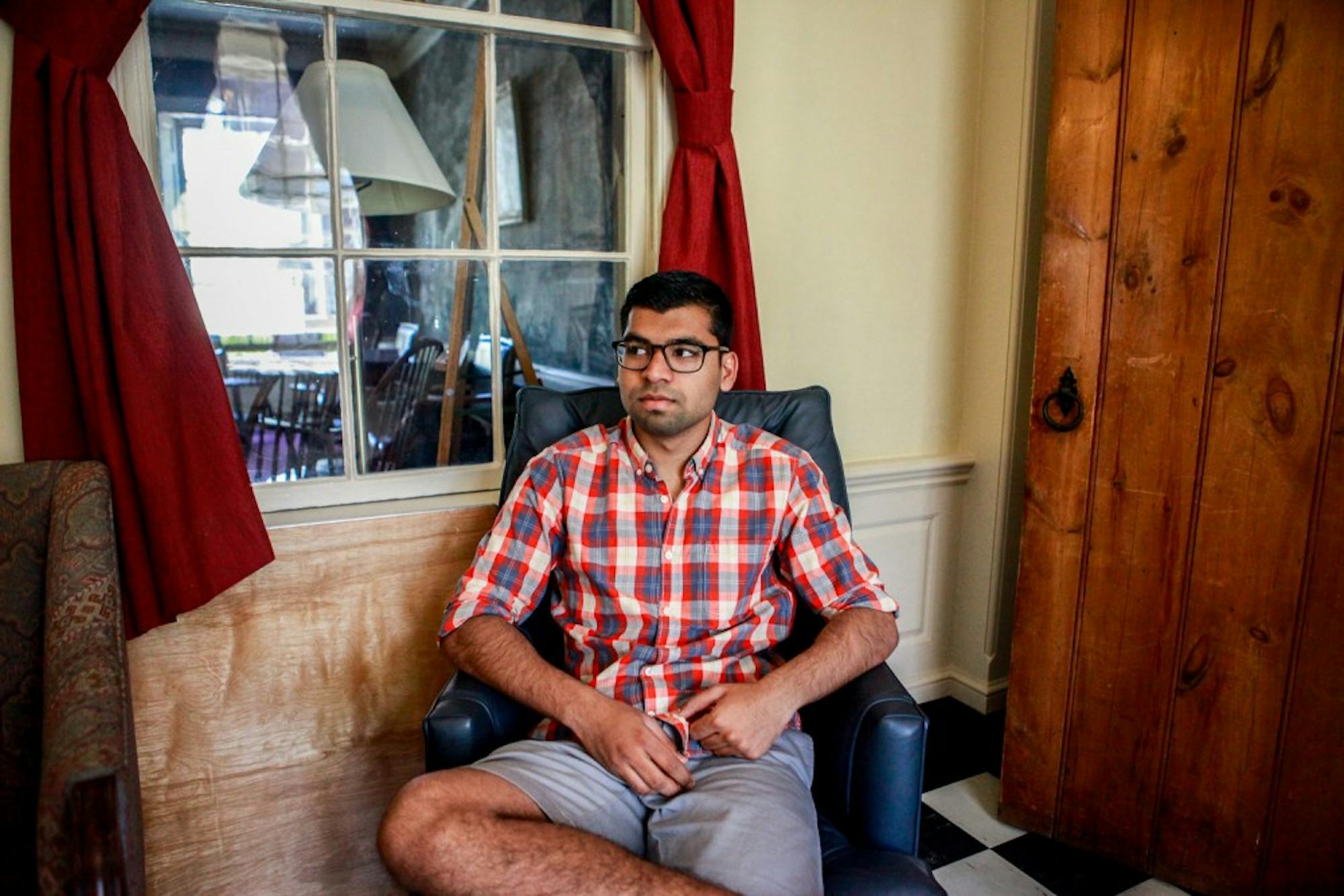Emily Chan ’16
Emily Chan ’16 divides her money — earned from multiple campus jobs — between necessities, tuition and recreational purposes.
“A lot of my friends like to go out and eat, so I can work for that,” Chan said. “It’s a little expensive here. I help out by paying a bit of my tuition, too. It’s just about making sure that I have money saved up for future things, like buying my ticket home and traveling on the [Dartmouth] Coach. It all adds up, so it’s nice to have money for these things.”
Chan, as the co-director of Dartmouth Quest Scholars, a group that focuses on issues related to class, recently launched a project called Dartmouth Class Confessions with Hui Cheng ’16. The project aims to raise awareness and dialogue around the unspoken experiences surrounding socioeconomic identity.
“With Class Confessions, the point is anyone can anonymously submit a one liner or two liner about how they feel about class on campus,” Chan said. “Something that is a little discouraging for me is that it turns off people who are upper- or middle-class, and they think they’re excluded from that. I wanted it to be for everyone, and I want everyone to feel comfortable sharing.”
For Chan, the subject of class first arose when she traveled abroad and could not engage in the same experiences as some of her peers, she said.
“You don’t realize something when you don’t know what to look for,” Chan said. “I first noticed when I was on my [language study abroad] with other people. They were really nice, of course, but you see the obvious differences — half the group could afford to do a lot more than you can. Money can actually be real constraint for a lot of people, and it was just interesting that I myself had been so ignorant about it. Then I couldn’t stop seeing or noticing.”
Feyaad Allie ’16
Between working at the front desk of the Alumni Gymnasium, conducting research for the government department and working as a tour guide and as an undergraduate advisor, Feyaad Allie ’16 has committed himself to becoming the Renaissance man of student employment.
But for Allie, working multiple jobs on campus does not necessarily detract from his studies.
“Some of my jobs are activities that I do on campus on anyway,” he said. “Then there are jobs like working in the gym, where I can do homework while working there. It doesn’t feel like I’m losing time.”
And where does this money go?
“I’d say that maybe 20 percent goes to some fun things, like dinner in town, or some activity,” Allie said. “I usually would spend another 30 percent on any necessities, like if I need to buy shampoo or school supplies, in addition to an expense like a [Dartmouth] Coach ticket. In other words, these are things that are small enough that I don’t go to my parents for. The rest of it goes to my savings.”
Ultimately, Allie said that student employees choose to work on campus for different reasons depending on their personal situations.
“Some people work because of work-study or they want to help support their education here, whereas other people work for spending money,” Allie said. “I have a decent amount of jobs on campus because it just happened, and it functions for both reasons. For me, it is a combination of both.”
Gabriel Barrios ’15
While on campus, Gabriel Barrios ‘15 has worked several jobs, ranging from the service industry to youth education, he said.
“I’ve kind of jumped around between jobs,” Barrios said. “I’ve had at least one every term, whether it’s working at the gallery, at BarHop, and then some off campus jobs, as well. I used to be a ‘student supervisor’ at White River School, which was basically me being an after-school teacher teaching drawing as a work-study job. I’ve also had odd, temp jobs.”
For Barrios, he said that class becomes most salient when working in service jobs like BarHop.
“Nothing makes me more aware of other people’s class-related behaviors than the way that they interact with people who pick up after them or serve them,” he said.
Barrios said that other students who work in service note the same trends about student attitudes related to class, he said.
“I can kind of tell who’s more sensitive of the fact that service jobs are not necessarily a fun thing to do,” he said. “Conversations with other people made me more aware of that. It’s frustrating to be on the side of the person cleaning up.”




